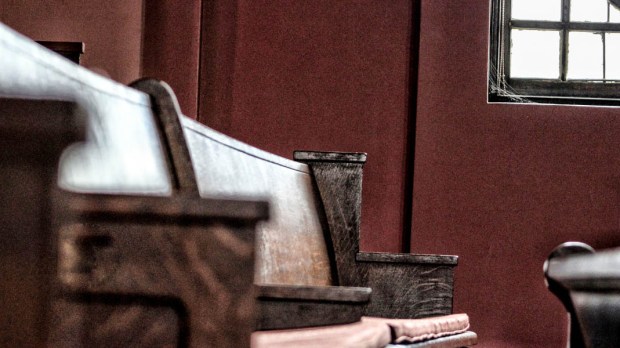Lenten Campaign 2025
This content is free of charge, as are all our articles.
Support us with a donation that is tax-deductible and enable us to continue to reach millions of readers.
Among other things, this new study concludes that one in five Americans is “spiritual but not religious.”
The findings, from PRRI:
The American religious landscape is undergoing unprecedented tectonic shifts in identity and practice. Americans who do not identify with any religious group—the religiously unaffiliated—now account for nearly one-quarter (24%) of the adult public, tripling in size over the last 25 years. At the same time, trust in religious institutions has fallen to historic lows. According to Gallup, only 42% of the public report having a “great deal” or “quite a lot” of confidence in organized religion. This is the lowest mark in the more than 40 years Gallup has canvassed American opinion on this topic. At its peak in 1975, more than two-thirds (68%) expressed confidence in organized religion. The decline of formal religious affiliation and the rising distrust of institutional religion have led some scholars to question whether the fundamental nature of religious practice and belief is changing. Rising rates of disaffiliation may not necessarily indicate an increasingly secular orientation but rather an abandonment of traditional religious practices in favor of a more personalized and customizable spirituality. This argument—that in leaving formal religion, many people who disaffiliate are not becoming secular, but instead are identifying as “spiritual but not religious”—is supported by research that shows growing interest in spirituality.3 There is some evidence to suggest that interest in spirituality and spiritual activities, such as meditation and yoga, is increasing. A report from the Pew Research Center found that Americans are more likely to report feeling a deep sense of spiritual peace and well-being or a sense of wonder about the universe than they were a few years earlier.4 A CDC study, published earlier this year, found that participation in yoga nearly doubled from 2002 to 2012. Despite the widespread attention that the spiritual but not religious group has received in recent years, there have been few efforts to undertake a rigorous investigation of the complex interplay of spirituality and religiosity among the American public. This report focuses on the group of Americans who are spiritual but not religious and explores the unique contribution that spirituality makes on personal behavior and decisions.
Then there’s this:
A person’s level of spirituality is a consistently strong predictor of how satisfied they are with various aspects of their life. Spiritual people—regardless of whether they are religious or not—report higher levels of satisfaction with their relationships, communities, and life in general than do nonspiritual people. For instance, a majority (53%) of Americans who are both spiritual and religious and half (50%) of Americans who are spiritual but not religious report being very or completely satisfied with their personal health. Fewer than half of those who are not spiritual but religious (42%) and those who are neither spiritual nor religious (37%) report being satisfied with their health. Similarly, while more than six in ten of those who are both spiritual and religious (70%) and those who are spiritual but not religious (61%) are very or completely satisfied with their life in general, only 53% of the not spiritual but religious and fewer than half (47%) of those who are neither spiritual nor religious say the same.
There’s much more. Check it out.

